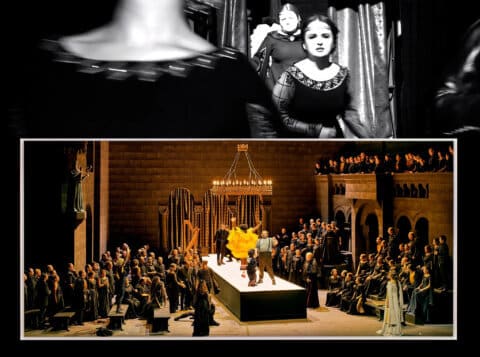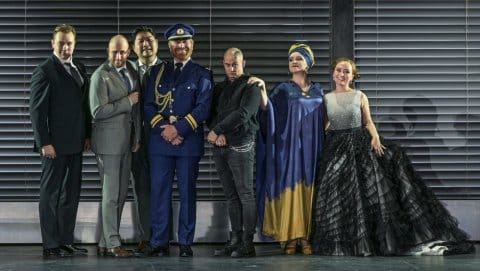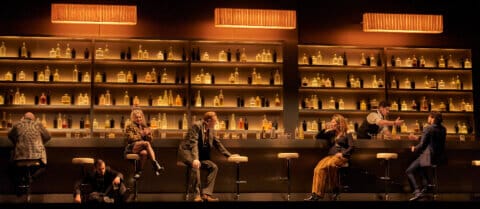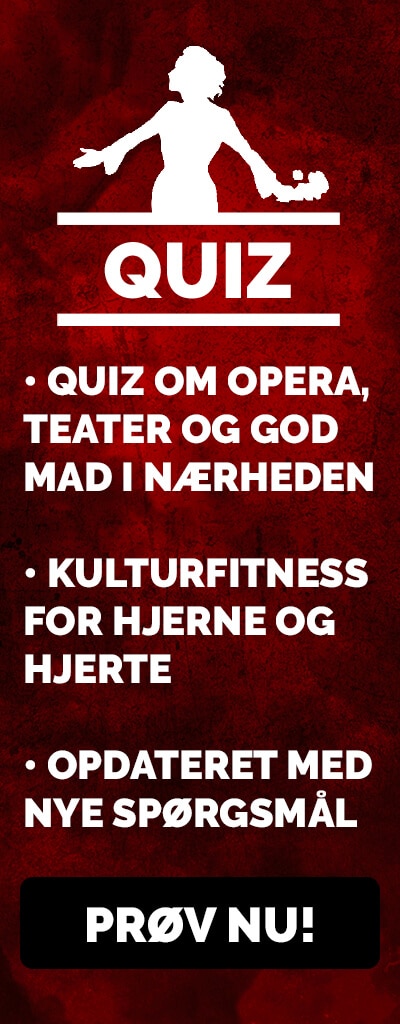THE GREEK PASSION – SALZBURG FESTIVAL 2023
★★★★☆☆
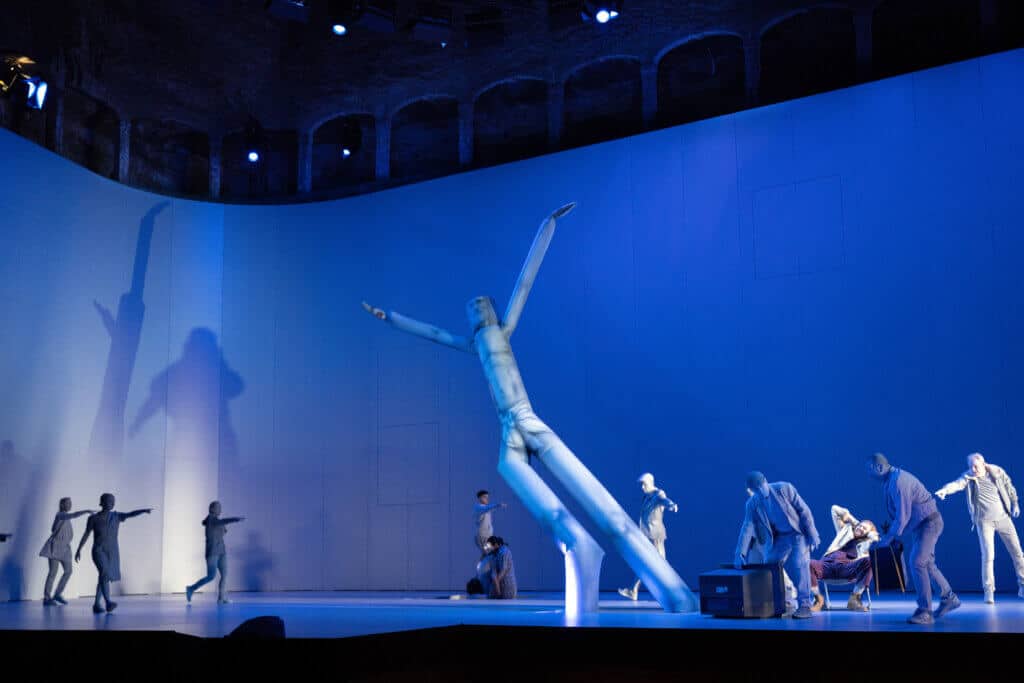
Photo: Monika Rittershaus
REVIEW THE GREEK PASSION : IMPRESSIVE MASS CHOREOGRAPHY AND TECHNICAL MIRACLES
The Salzburg Opera Festival presents a visually and technically impressive Simon Stone production of the contemporary opera rarity The Greek Passion in large tableaux on Felsenreitschule’s almost 100 meter wide stage. A handsome dark horse in the field of classical celebrities that crosses the finish line beautifully.
The 1961 opera was written by the Stravinsky-inspired Bohuslav Martinů, who is considered to be the most important Czech composer after Janacek.
The focal point is an ethical/moral discussion of the refugee issue, which was already topical in the 60s and has since become increasingly urgent.
As the title suggests, the complicated topic is approached through a Christian lens, which most people in the Western world are fairly peaceful about – if nothing else, as part of a widely accepted and fairly fair, humanistic set of values. A kind of agreed framework for good behavior.
The problem, of course, is that the pure-heartedness we pride ourselves on may not be so pure-hearted when it comes down to it, and the ideological must give way to the pragmatic.
Do YOU open your home and your fridge wide open when a boat with 1200 African boat refugees docks at your doorstep? Honestly?
That’s pretty much the dilemma of goodness in Martinů’s modern four-act play The Greek Passion.
Led by the local priest, the inhabitants of a Greek village are busy preparing for next year’s passion play when they are suddenly overrun by a group of Macedonian refugees who have fled after the Turks annexed and burned down their village.
Now they are knocking on the door in desperate need – in need of everything – and we can start with charity.
The leader of the refugees, who bears a striking resemblance to the Ukrainian Zelinskyj, turns out to be a priest himself, and they actually manage to make a deal with the locals where the arrivals can settle on a nearby mountain, put down roots and start over.
But then the problems start, and of course it all goes to hell, to stay in semi-religious lingo.
The subtlety of Nikos Kazantzajki’s libretto is that the local residents end up becoming one with the characters they have been tasked with portraying in the passion play that frames the story.
John, Judas, Mary Magdalene, Jesus, they’re all there.
It’s cleverly done when their character traits are transferred from the biblically exalted to dirty, but also understandable everyday realism in a small community under pressure.
Director Simon Stone has staged this modern piece of musical drama in a killer stage design with impressive mass choreography and technical miracles in the form of waterfalls, jumping springs, live animals, glowing crosses and inflatable Christ figures smashing through the floor.
The music is minimalist, repetitive in the manner of John Adams and Philip Glass, with melodic figures and motifs weaving in and out of each other, culminating in a thunderous requiem as the refugees are thrown out of the gates.
In a pool of blood, charity and Christian self-understanding fall apart in a familiar, complacent selfishness.
As always in Salzburg, the orchestra and soloists are top class. The performance captivates for almost two hours without intermission and is rewarded with four stars from Got To See This
PS. Was it really the star director Barrie Kosky who sat two seats in front of me and nodded approvingly throughout the performance? I guess that says it all.
I was SO starstruck and can’t wait until September 11, when I review the premiere of his version of The Gold of the Rhine at the Royal Opera House in London – a wildly hyped kick-start to the fall international opera season 23-24.
Don’t forget to read along.

